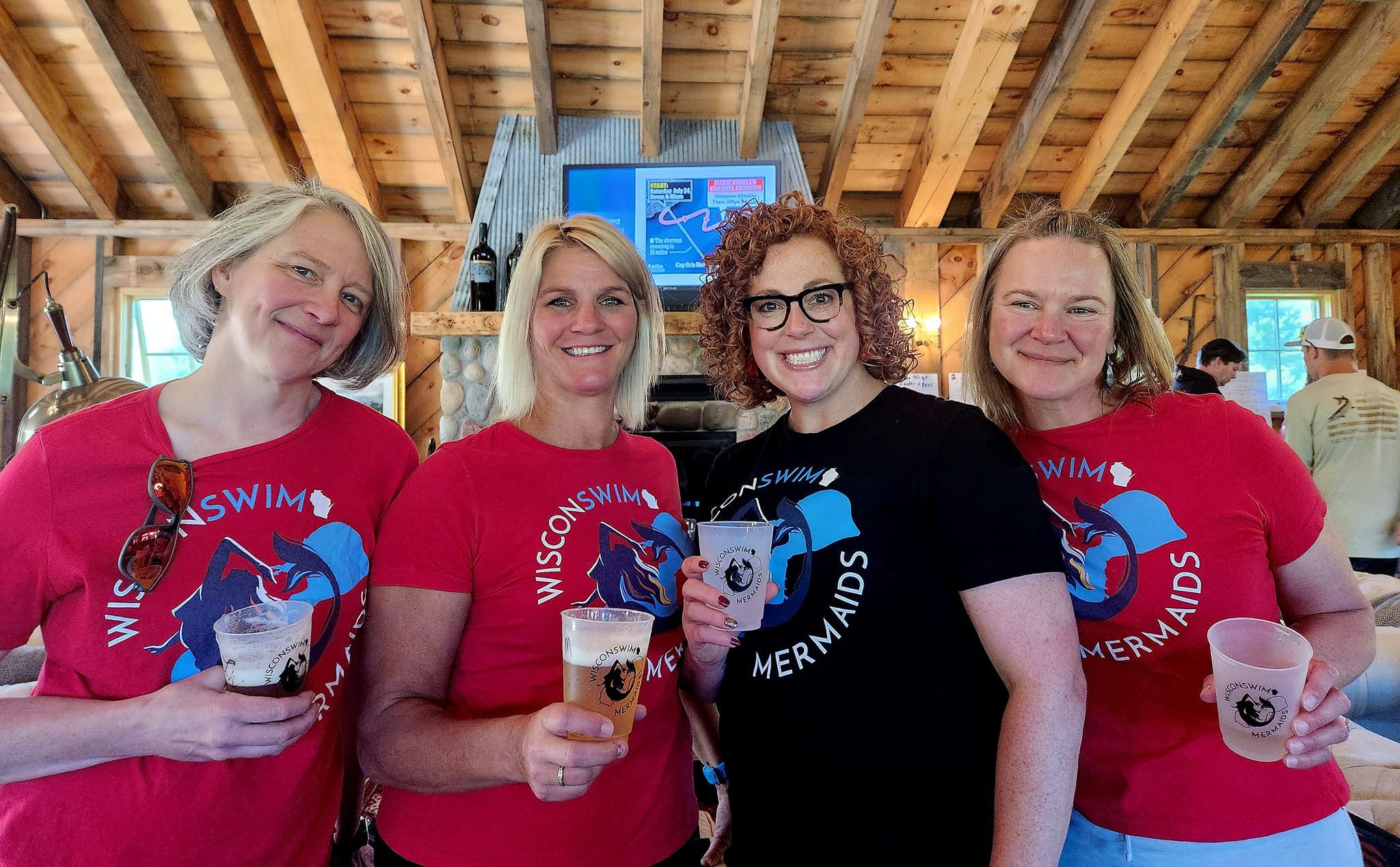When she was a kid, Michele DeYoung of Barnes recalled watching a documentary about American Gertrude Ederle, who became the first woman to swim across the English Channel.
“I just thought, ‘Well, I can do that,’” she said.
Throughout her life, the 58-year-old DeYoung, whose mother is from England, had asked people whether they would be willing to swim the roughly 21 miles from the English port of Dover to the shores of France. But she never had any takers.
That all changed three years ago when she began training with Pam Toshner, 48, of Barnes for the Point to La Pointe swim race that runs from Bayfield to Madeline Island on Lake Superior. When DeYoung asked Toshner, she was game.
Jen Titus, 43, of Hayward, and Lisa Weispfenning, 51, of Washburn, were also in, committing to swimming the channel as a four-person relay team.
On Aug. 17, years of cold-water plunges in Lake Superior and saltwater swims off the coasts of California and Florida paid off as the four women swam ashore the beach of Cap Gris-Nez in France.
“We were just so grateful. When (Lisa) finished on the shore, she knelt down and kissed the ground on the beach,” DeYoung said. “We all came in behind her, and we just cheered.”
Titus said the four women, known as the WisconSWIM Mermaids, swam 23 miles through changing tides and a minefield of jellyfish in 11 hours and 21 minutes. The Wisconsin women finished with the 8th fastest time out of 78 teams and swimmers overseen so far this year by the Channel Swimming & Pilot Federation. It’s one of two organizations that accompanies swimmers as they attempt to cross the English Channel.
Around 300 people attempt to swim across the channel each year, according to the BBC.
News with a little more humanity
WPR’s “Wisconsin Today” newsletter keeps you connected to the state you love without feeling overwhelmed. No paywall. No agenda. No corporate filter.
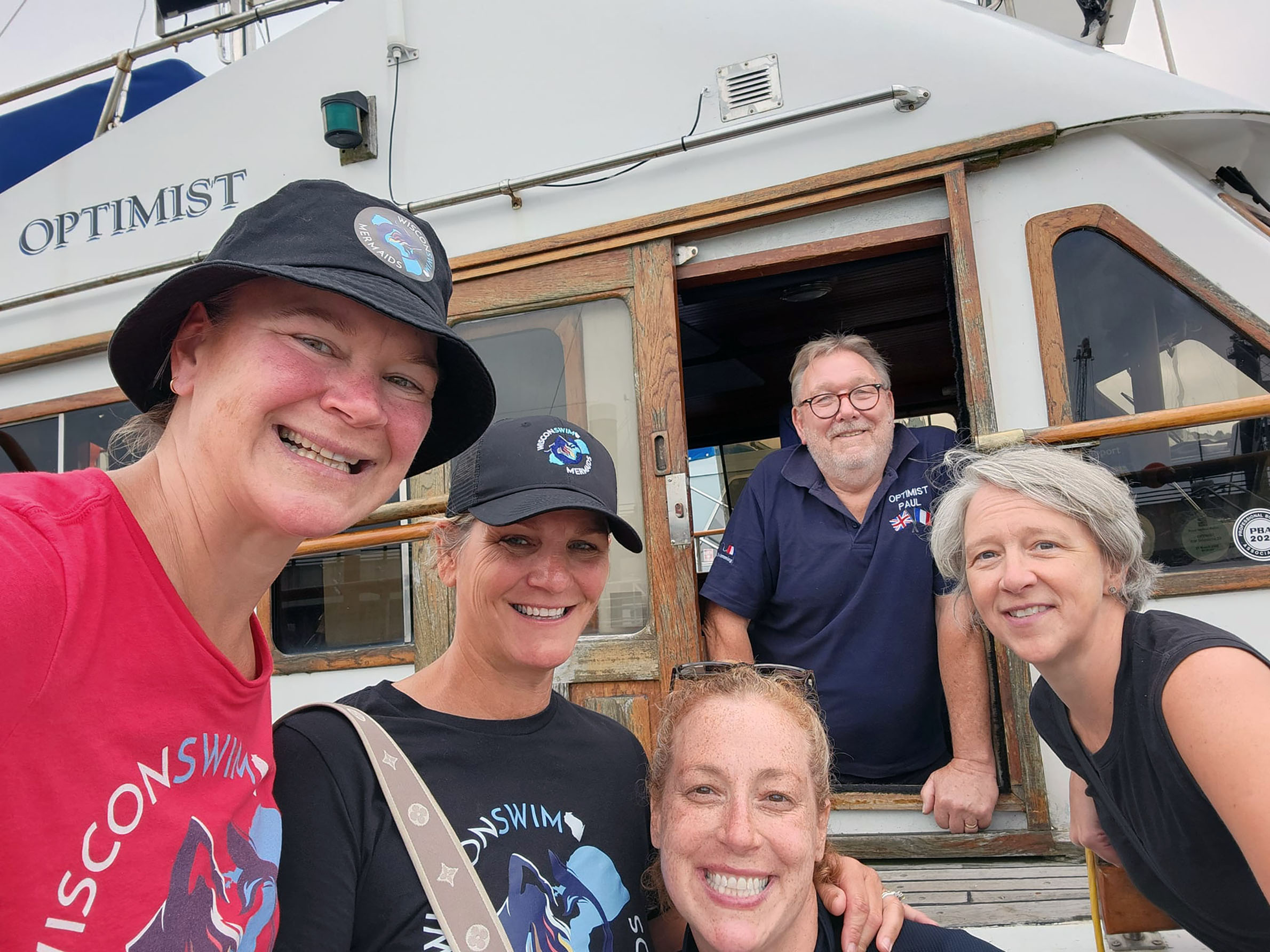
Women spent several years training in the icy waters of Lake Superior
On Aug. 17, the WisconSWIM Mermaids met up with Paul Foreman, captain of the Optimist, at the marina in Dover. Reached by phone in Dublin, DeYoung said she was the first woman in the water at 8 a.m. as each one took turns swimming one-hour legs across the English Channel with the boat traveling alongside them.
“I’m guessing the water temperatures were between probably 55 and 63 degrees (Fahrenheit),” DeYoung said.
For the past three years, the women trained in Lake Superior to prepare for water temperatures in the channel that can vary from 59 to 65 degrees Fahrenheit during the summer months. DeYoung said they would mostly swim along the lakeshore near the Washburn marina.
Titus, who was reached by phone in London, said they also logged many hours at area pools and cold-water plunges in the Eau Claire River near Barnes, swimming in temperatures as low as 48 degrees or even colder. As part of the federation’s rules, all those who take part in a relay swim across the English Channel must complete a swim in temperatures no warmer than 61 degrees without the aid of a wetsuit.
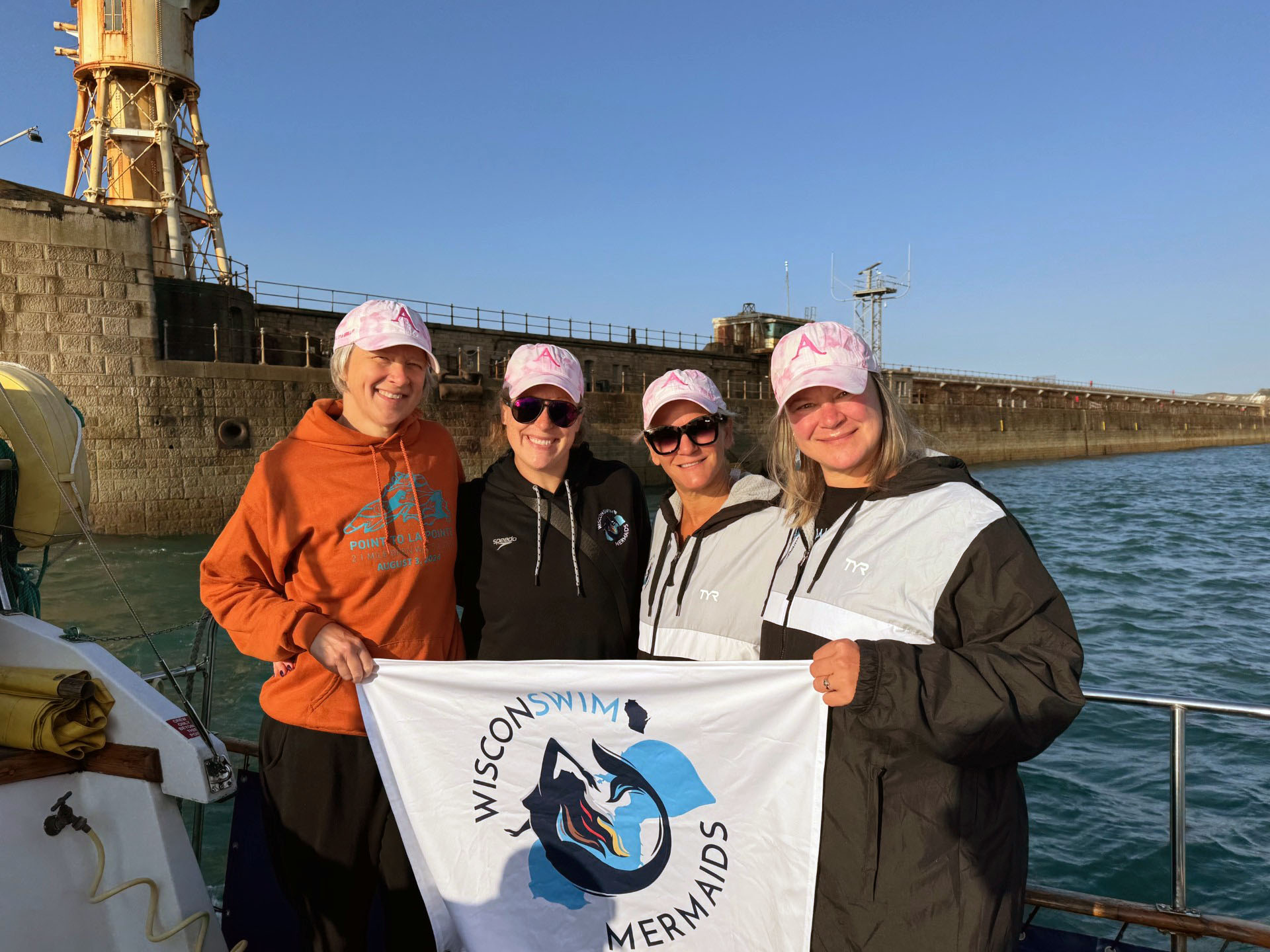
Earlier this year, the four women also took part in an icy swim to Alcatraz, a former prison located on an island off the San Francisco shoreline, to prepare for swimming in saltwater conditions. During training, Titus said they would monitor each other for any signs of hypothermia.
“First your lips go purple, and obviously your hands go purple and numb and stuff like that. But then, then you’ll start getting a little facial paralysis,” Titus said. “We would kind of push that to the limit.”
Prior to the swim, they also had to submit medical forms for approval by the federation, and the trip was not cheap. Titus estimated they spent about $10,000 each on flights, lodging, transportation, training and fees for the boat.
On the day of their swim, DeYoung said they lucked out with beautiful, sunny weather and waters much warmer than they had anticipated.
“The scariest part was we hit, for the last two hours, hundreds of jellyfish that we had to navigate through,” DeYoung said. “Each of us were stung by the jellyfish. It was jellyfish after jellyfish just coming at you.”
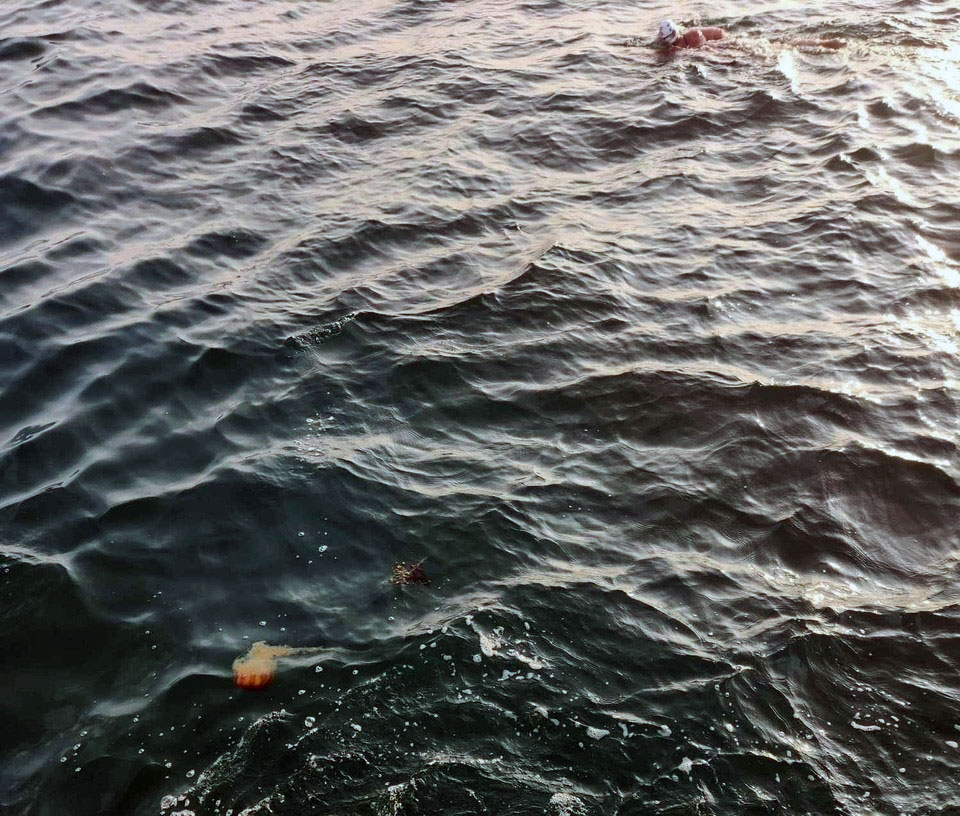
Swimmers navigated through hundreds of jellyfish
Lion’s Mane jellyfish are common in the English Channel, and the four women came prepared with vinegar and ointment to treat jellyfish stings. Even so, Titus said it was daunting to swim through blue and brown jellyfish the size of bowling balls.
“I was freaking out. Literally, my worst nightmare, and it was so bad that I couldn’t even kick my legs,” Titus said. “If you kicked your legs, you were going to kick jellyfish.”
Between gulps of air, Titus said sometimes she sometimes head butted jellyfish in her path, ending up with minor stings on her face and back. After one leg, she said, she came out of the water bawling her eyes out.
At the same time, a judge aboard the boat was watching their every move to ensure swimmers followed the federation’s rules. As the women climbed in and out of the water, they each had to do so without assistance from anyone else.
One silver lining is that they were swimming with the current as they drew closer to the shores of France. Titus said her friend Lisa Weispfenning steeled herself and jumped in the jellyfish-laden waters to finish the last leg of the swim. When she reached the shore, she climbed over barnacle-encrusted rocks before she stood up and blew a whistle to signify she had made it.
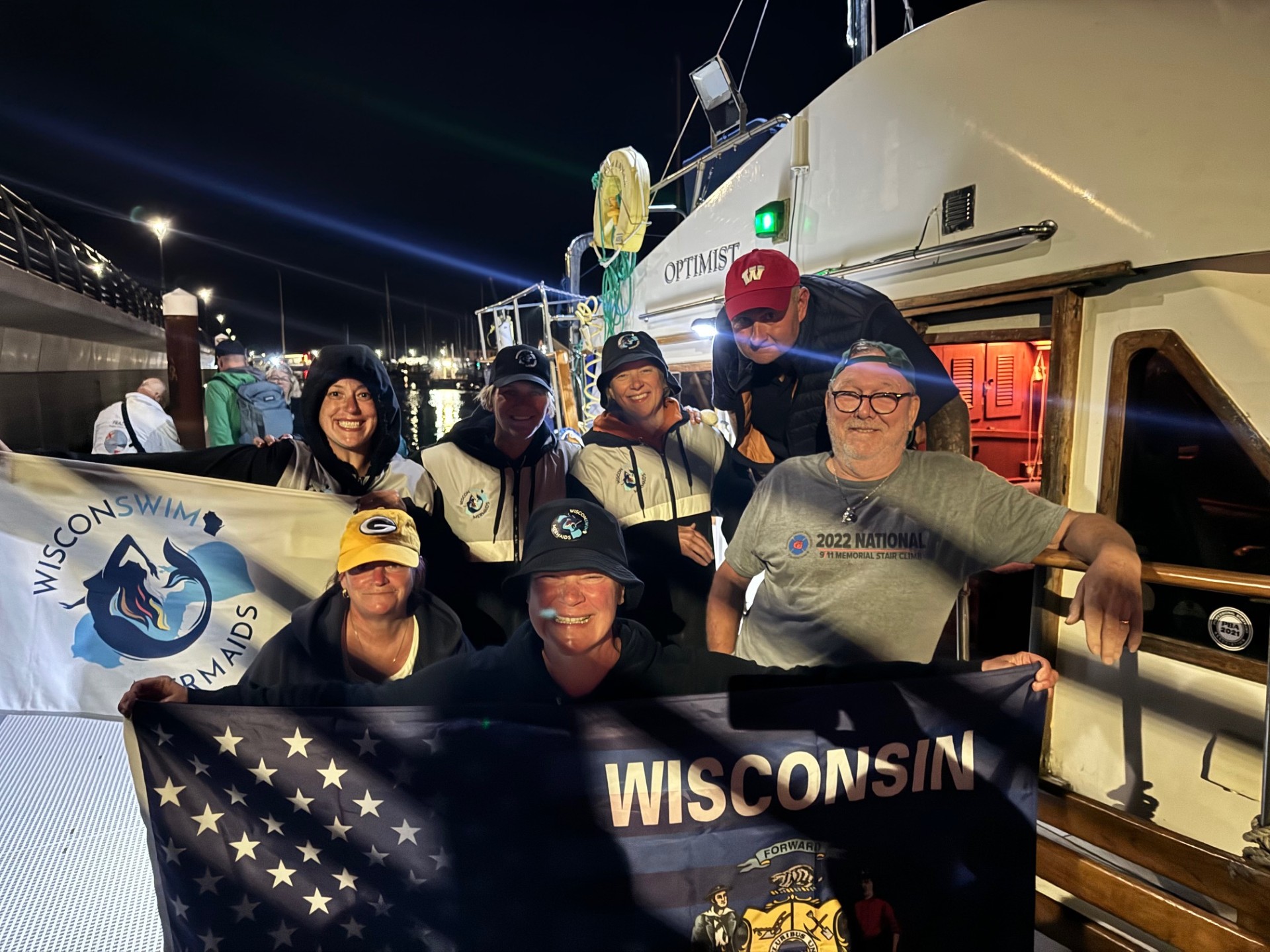
The other three women swam out to meet her on the shore, holding up their team flag and cheering.
“I think we were kind of like, ‘Holy cow. I can’t believe we just did that!’” Titus said. “We had a goal. We trained for it, and we completed it. That was a huge, successful feeling. We just felt proud and grateful and thankful that we were all healthy enough and able to do this.”
The following day, the WisconSWIM Mermaids went to the White Horse Inn, the oldest pub in Dover, and recorded their swim time on the door alongside other successful swimmers.
Titus said the women made the swim because they wanted to raise awareness about clean water, encourage people to take risks and “do epic things.” As part of keeping that momentum going, Titus said she plans to take part in a 411-mile relay swim next year that’s being held to commemorate the 50th anniversary of the sinking of the Edmund Fitzgerald.
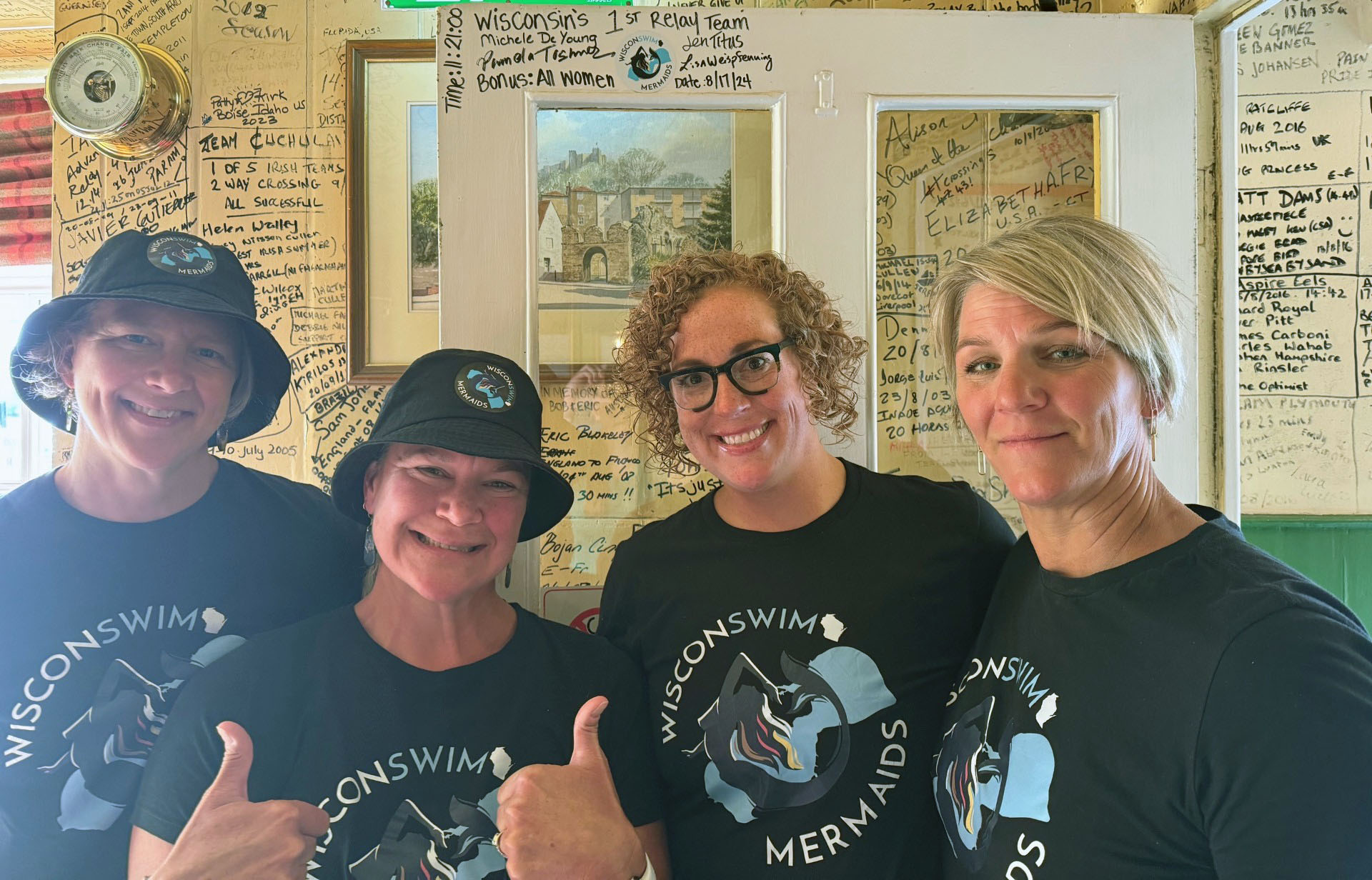
Wisconsin Public Radio, © Copyright 2025, Board of Regents of the University of Wisconsin System and Wisconsin Educational Communications Board.

